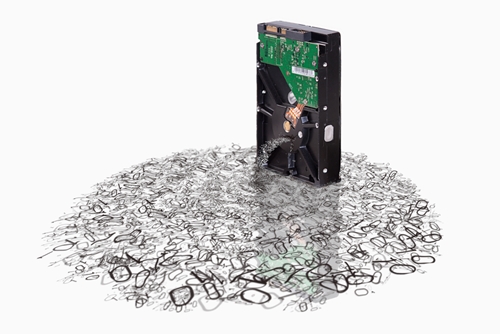4 Ways to Prevent Disk Errors
 In the life of a hard drive two things are certain: Death and … disk errors. The hard disk is the heart of the computing system and if it stops working correctly the system will stop functioning and your files could be lost. Even with all the innovations in computing hardware and disk storage the fact of the matter is that disk errors still and probably always will occur. There are many factors that contribute to a compromised hard disk ranging from poor computer use policies to malicious software and decay over time, but one guarantee to which many users can attest is that it always arrives at the worst possible moment. To avoid a disk error deleting an important presentation before it’s been given or wiping out family photos stored only the hard drive, there are several steps you can take to mitigate the possibility and be ready in case catastrophe strikes.
In the life of a hard drive two things are certain: Death and … disk errors. The hard disk is the heart of the computing system and if it stops working correctly the system will stop functioning and your files could be lost. Even with all the innovations in computing hardware and disk storage the fact of the matter is that disk errors still and probably always will occur. There are many factors that contribute to a compromised hard disk ranging from poor computer use policies to malicious software and decay over time, but one guarantee to which many users can attest is that it always arrives at the worst possible moment. To avoid a disk error deleting an important presentation before it’s been given or wiping out family photos stored only the hard drive, there are several steps you can take to mitigate the possibility and be ready in case catastrophe strikes.
1) Diagnose the issue
As mentioned above, there are many different sources of disk error. Knowing the cause of the problem makes responding to it easier, and can determine whether the disk can be saved or if it’s beyond repair. For example, a previously saved file that cannot be viewed or retrieved could be a file error. A Windows repair tool could be used to check the error and correct it. Alternatively, if the computer won’t save a file or recognize a drive it could be a system error. This would indicate that more aggressive computer repair strategies are necessary to rectify the problem.
2) Delete – but be careful
Over the years, the desire for disk space has kept pace with advances in storage technology. Not too long ago, users bemoaned the space limitations of the floppy disk, but it’s not out of the ordinary to hear complaints of a similar ilk applied to the seemingly massive hard drives of today. People are simply keeping more stored on their hard disks, including larger files like massive photo collections and movie libraries, and all these extra files can cause a slow computer. According to PC Pro, searching through hard disks to find files and partitions that are no longer in use can yield a trove of expendable data. Even if an old application is sent to the recycle bin, it may have left many of its component parts behind, where they can disrupt the files you need. Hard drive formatting software can be a key aid in the effort to rid a computer of unnecessary files without accidentally deleting a needed file.
3) Disk defragmentation
As hard drives become increasingly loaded down with files, the chance that a disk error could occur grows. Forcing a computer to run through a vast index of files every time one is opened increases strain on the computer’s infrastructure and makes the system more likely to shut down or perform poorly. A disk defragmenter can correct the buildup of scattered file data and better position the hard disk to run smoothly.
iolo technologies’ System Mechanic includes proprietary software that not only defragments data files, but also realigns related program files with each other for the very fastest access. It then speeds up writing to disk with a separate technology in order to prevent fragmentation in real time. System Mechanic does this by sending data in contiguous batches rather than in separated fragments that write to disk tediously and are slower to recall later.
4) Internet history cleaner
Using an Internet history cleaning tool is a great asset to a healthy hard drive. According to the Guardian, cleaning the computer of the debris that builds up over the day from temporary files to cookies and auto-complete entries can make the hard drive faster as well as limiting the number of files that could potentially contribute to a disk error. Running an Internet history cleaner as either the first or last action on a computer each day can maximize the computer’s daily health.
System Mechanic includes a Privacy Cleaner tool that easily clears your cookies, browsing history, download cache and temporary Internet files to help keep your hard drive clutter free.








